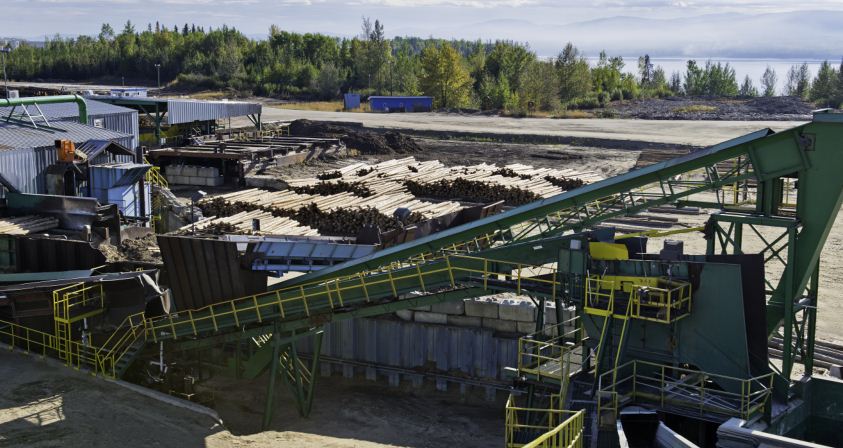Conifex Timber Inc. announced that, in light of imminently expected transportation challenges that will affect all Canadian lumber producers for an unspecified period, together with already existing unfavourable market conditions, Conifex is reducing its sawmill operating schedule at its Mackenzie, British Columbia site to a one-shift basis for the foreseeable future and temporarily curtailing its power plant, each commencing on August 26, 2024. The Company anticipates an end to the curtailment of its power plant by September 30, 2024.
On August 18, 2024, Canadian National Railway formally notified the Teamsters Canada Rail Conference (the "Union") that it would begin locking out Union workers early on August 22, 2024, and the Union issued a 72-hour strike notice to Canadian Pacific Kansas City Rail.
“Unfortunately, a reduced operating schedule at the sawmill is necessary for the foreseeable future due to the combined impact of our inability to ship production on a two-shift basis to end markets for an unspecified timeframe, reduced demand for our lumber products, low lumber prices and punitive lumber export duty impositions,” said Andrew McLellan, President and COO of Conifex.
While it is difficult to quantify the impact that the reduced operating schedule will have on production capacity, the power plant curtailment is anticipated to impact power production capacity by approximately 24.6 GWh. If there is a near-term resolution to the imminent transportation challenges, Conifex may be in a position to end the curtailment of the power plant before the end of September.
“Conifex will closely assess and adjust the sawmill operating schedule as supply chain and market conditions evolve. We are working on a priority basis to position Mackenzie for long term sustainable production and will be seeking to mitigate the impacts on our employees as much as possible,” said Mr. McLellan.
Conifex continues to work collaboratively with the Ministry of Forests to implement important policy decisions, including a decision published by the Minister of Forests today, under Section 63 of the Forest Act to align annual harvest volumes with the Chief Forester of British Columbia's May 2023 Allowable Annual Cut ("AAC") determination for the Mackenzie Timber Supply Area ("TSA"). Accordingly, the Minister has prescribed an 18.4% reduction of AACs of Replaceable Forest Licences to align harvest levels to the current AAC.
Effective August 19, 2024, the AACs of Conifex’s Forest Licence A15385 and Forest License A93631, in which Conifex owns a 50% interest, have been reduced by 117,172 cubic metres and 55,576 cubic metres, respectively. The new AACs for the licenses are 515,328 cubic metres and 244,424 cubic metres, respectively, or a total available sawlog supply of 759,752 cubic metres annually.
Current open market timber volume available for sale in the Mackenzie TSA exceeds 1.7 million cubic metres annually. At Conifex’s existing footprint, the requirement to procure additional timber volume represents less than 10% of the available open market timber supply. A primary consequence of the Minister’s decision is that Conifex’s internal timber supply will account for a slightly lower portion of our sawlog consumption, while open market sawlog purchases will account for a slightly higher portion.
To help ensure that manufacturing facilities in the Mackenzie TSA have assured access to sawlog supply for decades to come, Conifex also expects the Ministry will update its methodology for determining cost allowances and stumpage charge impositions and put additional safeguards in place to ensure harvesting in the southwest partition zone is sustainable. We expect this approach should also encourage BC Timber Sales to better meet its mandated requirement to provide a full range of cost and pricing benchmarks for timber harvested from public land in British Columbia.
Conifex and its subsidiaries' primary business currently includes timber harvesting, reforestation, forest management, sawmilling logs into lumber and wood chips, and value added lumber finishing and distribution.
